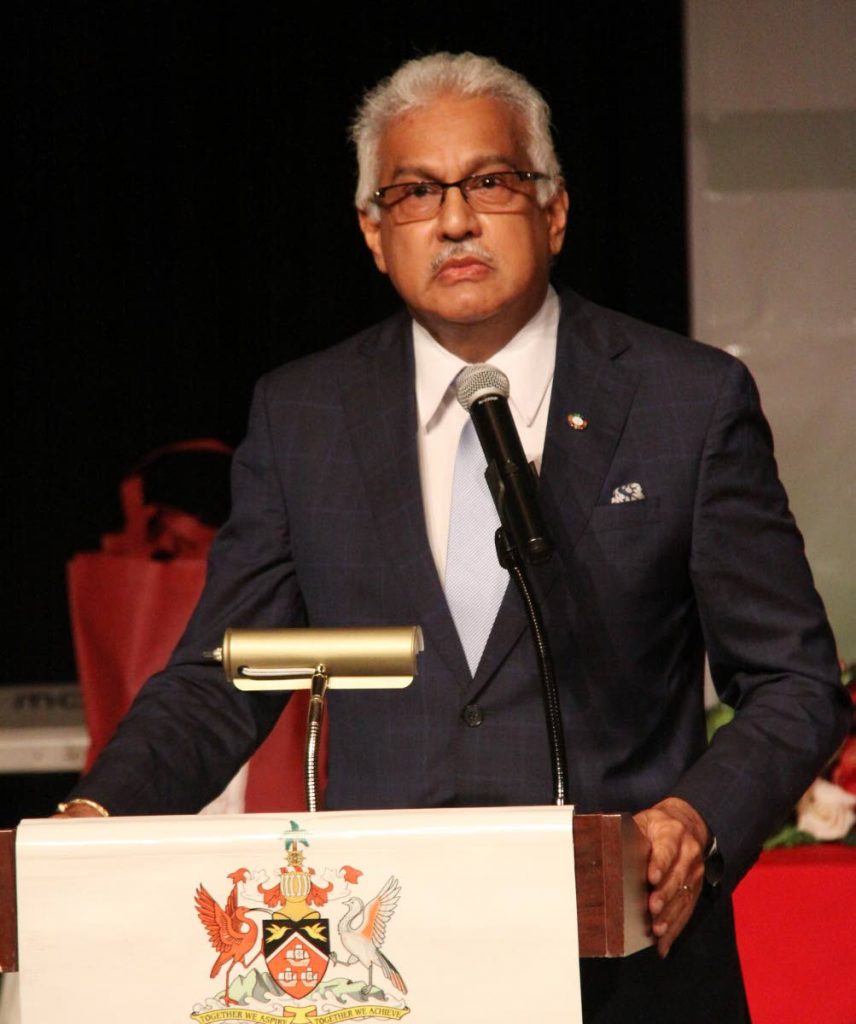Deyalsingh wants pregnant women screened early

Health Minister Terrence Deyalsingh has said pregnant women should not wait till they are in the second half of their pregnancy to go to the public health care system for screening.
He was addressing the media and members of the medical fraternity on improvements in maternal and neonatal health care at the Ministry of Health (MoH) in Port of Spain yesterday.
On maternal and infant health in the national health care system, he said there are some 17,000 deliveries a year.
To complicate what doctors and nurses are faced with in the public sector, 40 per cent of women accessing its care do not go for ante-natal care within the first half of their pregnancy, though in the private sector the figure is close to 100 per cent.
A peeved Deyalsingh said doctors and nurses in the public health care system didn't get credit they deserved.
“They don’t get credit for the 9,999 things that go right, but let one thing go wrong – that is what defines them, and I want to reverse that.
"In the private sector they handle nine per cent of the births in TT, but of that, 54 per cent are C-sections, which is a high-risk procedure.
"But in the public sector we handle 91 per cent of births and our caesarean rate is 27 per cent, which is World Health Organisation (WHO) standards.”
The minister said the public health care system workers ought to be praised for the good they did, and if the women accessing the system would only come in for screening at the start of pregnancy, they would fare better, better as any problems they might have would be picked up earlier.
He said: “It is a very complex issue but it is linked to demographics, age, social factors, economic factors, income, where you live: in other words it is called the social determinacy of health.”
Deyalsingh added that public health care system workers performed miracles every day by bringing complex pregnancies to a happy ending.
“Added to that, the private sector sends all their difficult cases to Mt Hope, San Fernando and Port of Spain (public hospitals).
"So when something happens, who gets the bad name? The public sector.
"It has gone unnoticed that the private sector is not geared to handle difficult cases and comes to the public sector. So this is the context (in which) we have achieved our Sustainable Development Goals as per the UN, for both maternal mortality rates and neo-natal mortality rates – 12 years ahead of schedule.”
Earlier Debra Thomas, manager of the National Breast-feeding Co-ordinating Unit, spoke about the Baby-Friendly Hospital Initiative (BFHI) ten-step guidelines for improving breastfeeding and ante-natal care. She said the Pan American Health Organisation (PAHO) has come on board to assist by training staff to support mothers when they deliver their babies and with aftercare.
She said bonding is a life-long benefit and that exclusive breastfeeding for at least six months strengthens babies’ immune systems.
Thomas said very soon TT would become one of the first Caribbean countries to have a national breastfeeding policy.
Dr Adesh Sirjusingh, who gave an overview of the directorate of women’s health, said the minister’s push for improvements in the health care system gave birth to the directorate in 2017.
“We are here to celebrate its recognition by the PAHO and WHO on its significant improvements over the last few years in maternal and newborn health.”
The directorate has effected improvements including solving breast-feeding issues, health promotions and vaccination, and work is now being done on eliminating cervical cancer, as well as mother-to-child transmission of HIV and syphilis.
He said neonatal mortality rates had been as high as 12 cases for every 1,000 live births, but today it was seven for every 1,000 live births.
Dr Victor Wheeler, head of the Obstetrics and Gynecology Department, Scarborough General Hospital, spoke on benefits of the perinatal information system (SIP) plus in Tobago, a new clinical record used for obstetric care . He said it was used in all regional health authorities (RHAs) and aimed to standardise care provided for women by ensuring that every woman had certain basic investigations done.
Another benefit is a built-in data analysis tool from which trends in care can be monitored. Now records are now online in each RHA server with secure access.
Izola Garcia, consultant on family health and disease management at PAHO/WHO, expressed PAHO’s continued support for maternal and neonatal care in TT.

Comments
"Deyalsingh wants pregnant women screened early"